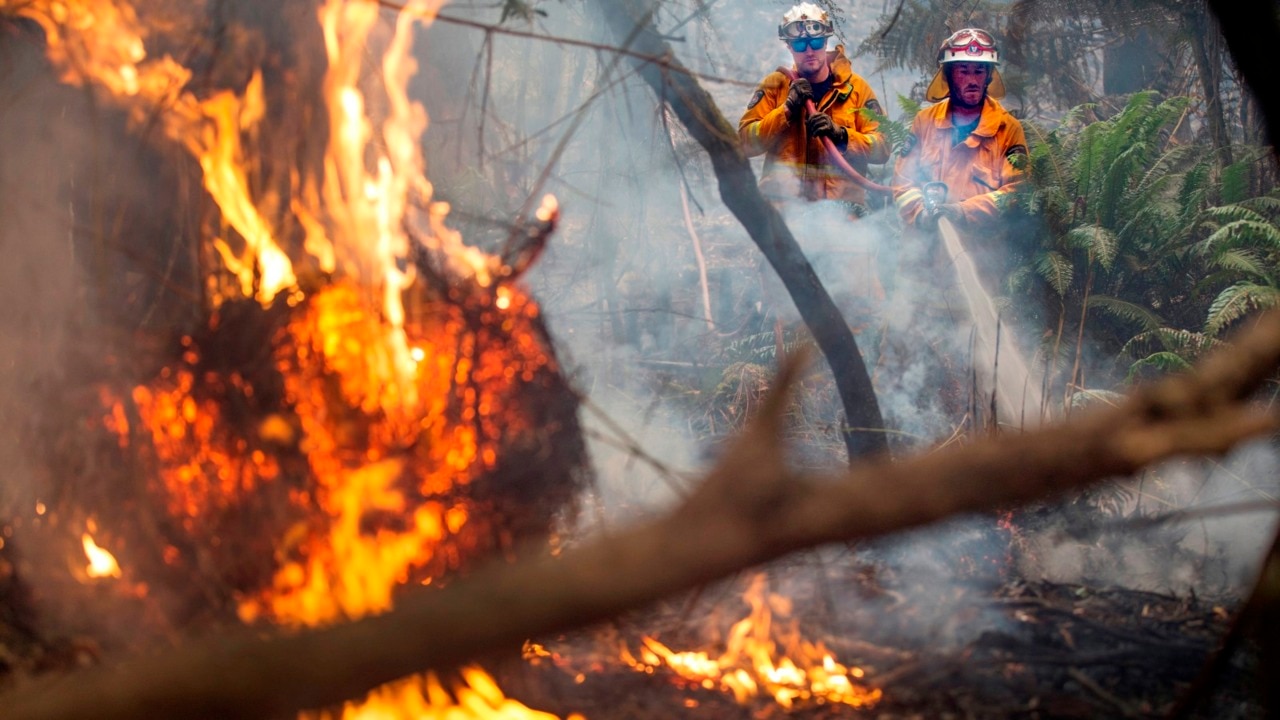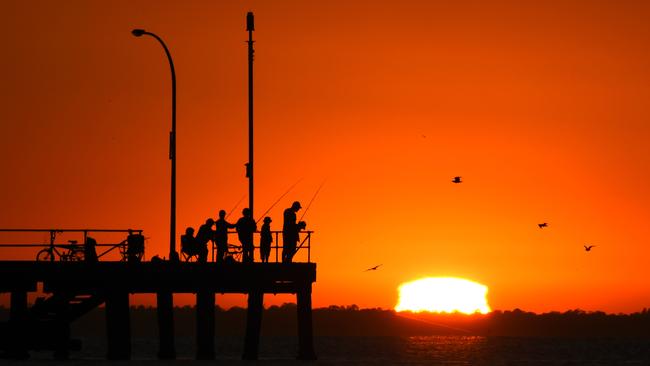Rex Gardner: Melting moments prove a fickle friend for Tasmania
Australia’s scorching summer is indeed a fickle friend for Tasmania.

Opinion
Don't miss out on the headlines from Opinion. Followed categories will be added to My News.
AUSTRALIA’S scorching summer is indeed a fickle friend for Tasmania.
On one hand uncontrollable fires have been ravaging the state and terrifying people. Nature’s fire fury has been front and centre for everyone; but particularly hell on earth for those in the line of smoke, ember attacks and fire.
On the other hand we’re earning massive dollars exporting electricity to our interstate cousins, who have been cranking up their airconditioners to the red-line maximum for relief from temperatures reaching well into the 40s.
RELATED:
RUSH FOR RESIDENTS TO GET OUT OF TOWN
IMAGES FROM TASMANIA’S FIREFRONT
DON’T BLAME US FOR TARIFFS, SAYS AURORA
The horrendous fire situation is what Tasmania Fire Service fire managers at TFS HQ in Argyle St and their small army of men and women in yellow overalls plan all year for but dread happening.
For weeks now they have been trying to hold back the fires and defend parks and property. The battle against nature, lightning strikes and bushfires has been excruciating. Hell on earth for many.
On the other hand, for Hydro Tasmania, just a stone’s throw away from the TFS at the bottom of Elizabeth St, the mercury going through the roof across the creek is Heaven on earth.
It’s what it plans and prays for.
Stinking hot weather and massive power consumption in Victoria means one thing for Hydro: KAAAAACHING!
Every day has been payday in a big way.
The horrendous fire situation is what Tasmania Fire Service fire managers at TFS HQ in Argyle St and their small army of men and women in yellow overalls plan all year for but dread happening
It is estimated that Hydro has been earning as much as $7 million an hour exporting power across Bass Strait into the national electricity grid at peak times.
In Victoria, excessive power usage reached crisis point on Friday as temperatures soared.
In excess of 478MW was flowing north across Basslink, with prices expected up to $14.50/kWh.
At the same time the price in Tasmania was around 13c/kWh.
Victoria’s dire power supply situation was exacerbated when three of the state’s coal-fired power generators across Yallourn and Loy Yang A in the Latrobe Valley shut down.
Big power users, like Alcoa’s aluminium smelter, powered down to conserve supplies.
On Friday the Victorian Government pleaded with other large manufacturers to shed power, and called on Victorians to avoid non-essential power use, like dishwashers, washing machines and pool pumps.

Debate about the state’s poor power consumption habits raged, particularly on talkback radio, as it became clear that many people fired up domestic airconditioners before heading off for work, so the house was cool at the day’s end when they returned home.
Tasmania is currently in a purple patch with Hydro dams at healthy levels and interstate demand peaking.
Marc White, a consultant at Goanna Energy Consulting, watched his computer screen on Friday as Hydro pushed power interstate and the Victorian price soared upwards of $12/kWh, providing hourly revenues of $5.73 million.
He said this summer was good news for Hydro as long as the state’s current energy in storage held up.
Stinking hot weather and massive power consumption in Victoria means one thing for Hydro: KAAAAACHING!
In other words, at some point the water storages will need rain inflows.
“Hydro storage is currently at 37.2 per cent capacity, and the 10-year average for this time of year is 43 per cent. We are only marginally below the long-term storage, so we are in good shape for export,” Mr White said.
If Hydro took excessive advantage of the high demand interstate without rain inflows, Tasmania may eventually have to supplement its hydro power by firing up gas power, “so that is the balance”, Mr White said.
Mr White said the current residential electricity tariff structure was not sending the correct message to consumers.
“The fact is now that off-peak nowadays is when the wind blows and the sun shines,” he said.
While the dollars flow into Tasmania at the big end of the power supply chain, domestic consumers who have supplemented Hydro power with solar panels on their roofs are not all happy.
On the ground, it’s a far cry from the megabucks paid to Hydro in good times at the other end of the electricity spectrum
The Mercury gets flooded with letters from people who invested in rooftop power panels, only to find feed-in prices falling.
The solar feed-in tariff is the rebate solar panel owners get for feeding excess power into the electricity grid, and it varies depending on when solar systems were installed.
For owners of systems installed before August 30, 2013, the feed-in tariff is guaranteed at the same amount they pay their retailer to import electricity, which is around 26c per kWh.
This guarantee ends on December 31 this year.
For systems less that 10kw purchased post-August 2013, the feed-in tariff is currently around 8.5c per kWh.
On the ground, it’s a far cry from the megabucks paid to Hydro in good times at the other end of the electricity spectrum.


